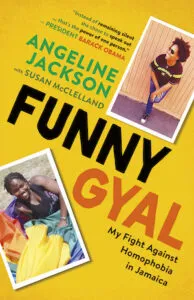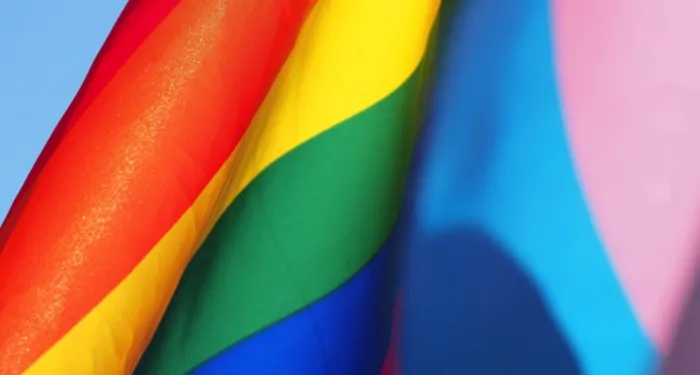
20 Must-Read Queer Nonfiction Books from Around The World
Queer people live, love, and survive on all seven continents of our earth (I’m making some assumptions about Antarctica). Trans, nonbinary, pansexual, bisexual, lesbian, gay, queer, agender, asexual, people live in all corners of our world.
But too often, Western readers don’t look far enough outward. We tend to read queer novels that center Western ideas and language around queerness. I recently read a review of an African queer novel that claimed that the kind of violent homophobia the protagonist feared and witnessed was no longer a reality.
First of all, that’s an extremely short-sighted view — trans and queer people are still in tremendous danger of violence in the U.S. But it also helps to reveal our inadequacies as Western readers. To be true global allies, we need to read perspectives of queerness from around the world, and open our minds and hearts to the realities of homosexuality and gender-nonconformity around our globe. Queerness is still criminalized in many countries, and queer people face all kinds of violence, isolation, and fear globally.
So leave the U.S. behind. Dive into the stories of queer folks from Kenya, India, Jamaica, Cuba. Listen as queer writers consider their identities, lives, and loves through their families, traumas, languages, and faiths. Here are 20 must-read books from around the world that tell true stories in the voices of queer writers.
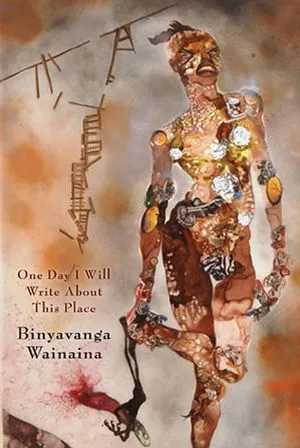
One Day I Will Write About This Place: A Memoir by Binyavanga Wainaina
This award-winning memoir by Kenyan author Wainaina tells his story of his coming-of-age in the ’70s, of going to learn computer programming in South Africa, of a later family reunion in Uganda and return to Kenya.
He was one of the first Kenyan public figures to be open about being gay — homosexuality is still criminalized and illegal in Kenya — sharing that he had known he was gay since he was 5. He shared he was HIV-positive in 2016. Unfortunately, he passed away in 2019, before he could marry his partner in South Africa. Wainaina is also well-known for satiric article “How to Write About Africa.”
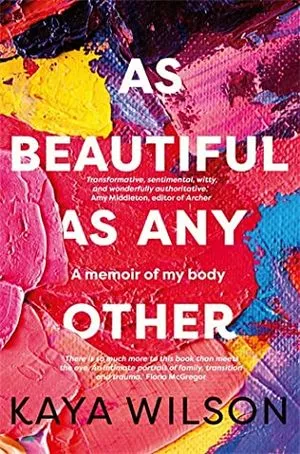
As Beautiful as Any Other: A Memoir of My Body by Kaya Wilson
In 2016, tsunami scientist Wilson went surfing. He had done so many, many times before. But this time, in an unfortunate and shocking accident, he broke his neck. The doctors expected him to be paralyzed from the waist down. He was lucky to have survived.
It was a moment to confront his identity and his future, and so he did. He had been assigned female at birth, but had been questioning his identity for a long time. Now, he came out to his parents as trans, and their reaction would unspool a family history of concealed queerness, trauma, and shame.
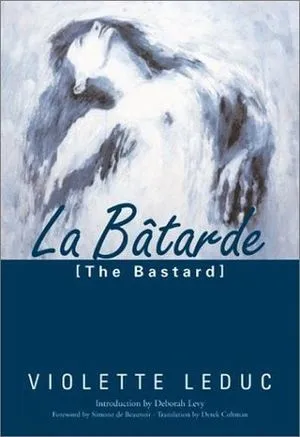
La Bâtarde by Violette Leduc, translated by Derek Coltman
Leduc first made a splash in French society with Thérèse and Isabelle, an erotic story of two teenage girls exploring each other’s bodies, which was declared unpublishable, despite an era of daring explicit literature. Luckily, the story wasn’t over. De Beauvoir championed her work, and her autobiography published in 1964 finally made an impact she’s been hoping for. In the book, she is frank about her sexual affairs with men and women, sexy and a little tortured, while exploring her own inner struggles with her birth as the illegitimate daughter of a hostile mother and with her physical appearance.
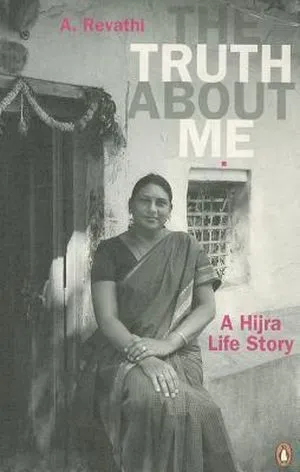
The Truth About Me: a Hijra Life Story by A. Revathi, translated by V Geetha
Revathi was assigned male at birth, but always knew that she was a woman. She suffered tremendous abuse because of it, including violent assault by her brothers. Eventually, she would run away from home and join the Hijra community, experiencing physical and sexual abuse, discrimination, poverty, sex work, and homophobia, she would eventually get work at NGO Sangama working for the rights of queer people, and rise to become the director. Her first book was Our Lives, Our Words, a collection of stories by Hijra authors.
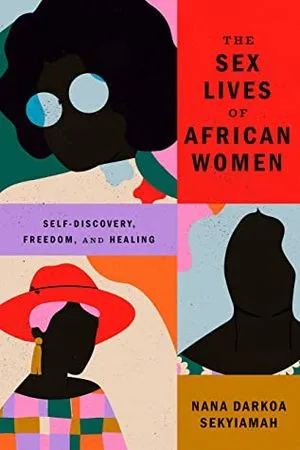
The Sex Lives of African Women: Self-Discovery, Freedom, and Healing by Nana Darkoa Sekyiamah
Nana has spent decades talking to African women around the world about sex through her blog Adventures from the Bedrooms of African Women. Now, she speaks to more than 30 women around the world to bring us their narratives and their confessionals in this book, all in order to capture free, subversive, and complex sexual power and sexuality of these women. We hear from a pansexual Canadian of Malawaian heritage; an HIV-positive Zimbabwean women raising an HIV-negative baby; a queer community in Egypt; a polyamorous relationship in Senegal. It’s a layered must-read of self-discovery, freedom to speak about often-taboo topics of sexuality and sex, and healing.
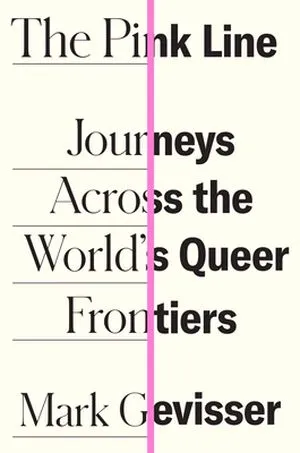
The Pink Line: Journeys Across the World’s Queer Frontiers by Mark Gevisser
In this book, Gevisser profiles queer folk around the world, focusing in on the “pink line,” the frontiers where the fight over LGBTQ human rights is being fought. Each subject is teetering on the line of a global push-and-pull, whether it be a gay Ugandan refugee stuck in Nairobi, or a lesbian couple running a café in Cairo, or a trans woman trying to win custody of her child in Russia. Gevisser wants to analyze the global queer rights movement, examining how globalization, imperialism, geopolitics, and more are impacting the fight around the world.
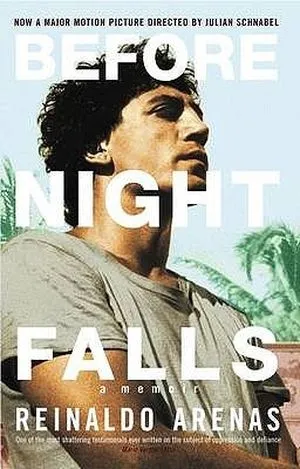
Before Night Falls by Reinaldo Arenas, translated by Dolores M. Koch
Cuban author Arenas writes a sometimes excruciating memoir of being gay first under Batista and then in Castro’s Cuba. He writes about the sex and bestiality all around him, the horror and pain of communist Cuba, the subversive people around him. It’s rich, tough, and sometimes ugly — he writes of his impoverished childhood, of fighting for Castro as a teen, and of his life as a journalist and editor in Castro’s Cuba, in which the government suppressed his writing and eventually imprisoned him for his homosexuality — or more accurately, for “ideological deviation” and for publishing abroad without official consent.
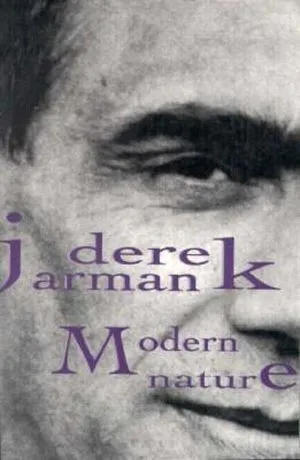
Modern Nature by Derek Jarman
In 1986, filmmaker Derek Jarman discovered that he was HIV positive. At the time, there was nothing that doctors could — or, sometimes, would — do, and all he could do is manage his symptoms and wait. And so he channeled his emotion into creating: into building a garden in the back of Prospect Cottage in coastal, sea-sprayed Dungeness, and as he worked the soil, he wrote in his journals about the plants, the solace he found in nature, and his life in a now-lost but once flourishing gay community. The memoir is a nostalgic, rich, and open book about mortality, grief, and celebration of life.
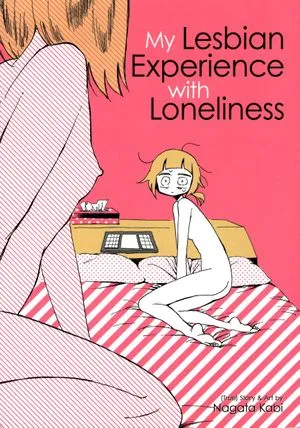
My Lesbian Experience with Loneliness by Nagata Kabi, translated by Jocelyne Allen
In this autobiographical manga, a young woman comes of age struggling with self-acceptance, depression, disordered eating, and her own queerness.
Nagata can’t live up to her parents’ expectations or find the kind of attachment she hopes for, and so she finds herself dealing with a tough emotional journey. It’s an honest and authentic story that looks light, but is truly an open and tough story about acceptance and trying to find a space where she belongs.
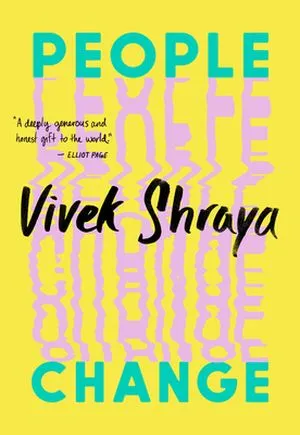
People Change ![]() by Vivek Shraya
by Vivek Shraya
Vivek Shraya is a Canadian trans, bisexual musical artist, the author of books including The Subtweet and I’m Afraid of Men, founder of publishing imprint VS. Books, and an assistant professor of creative writing at University of Calgary.
In this book, Shraya investigates change. She herself has changed quite a bit, and she examines the phenomenon from many angles, looking at pop star Madonna, transition, Hinduism, and much more to make the reader think and ponder on identity and what we fear about change.
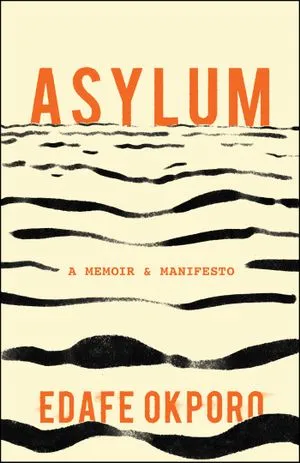
Asylum: A Memoir & Manifesto by Edafe Okporo
The night before Okporo turned 26, he woke up to violence. Abuja, Nigeria, where he had grown up, had discovered his secret: he was gay. He was forced to flee for his life from a violent mob, rushing for the U.S. just days before Trump would be elected in the 2016 election. He would have to try and get asylum in a country that was much less welcoming than many people have wanted to believe.
Okporo’s book is a story both of growing up closeted in Nigeria and of the painful failure of the U.S. immigration and refugee system.
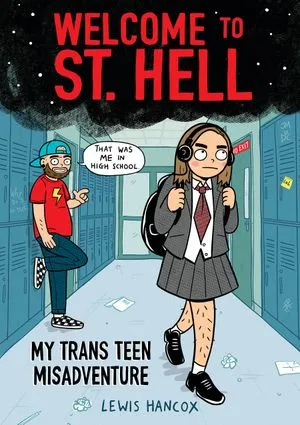
Welcome to St. Hell: My Trans Teen Misadventure by Lewis Hancox
In this graphic novel, author-illustrator and British YouTuber Hancox attempts to takes his young, reticent teen self, who had to go around as a teen girl, on a journey towards her future (note: the graphic memoir uses she/her pronouns for Hancox’s younger self). He knows all about the drama, healing, and pain it will take her to make her way to who they really are. Unfortunately, she’s too hurt and confused to receive his messages from the future. But luckily, she has some really good allyship and support in her future. It’s a love letter to transness and growing into Hancox’s queer self, from body dysphoria to the perils of dating to disordered eating.
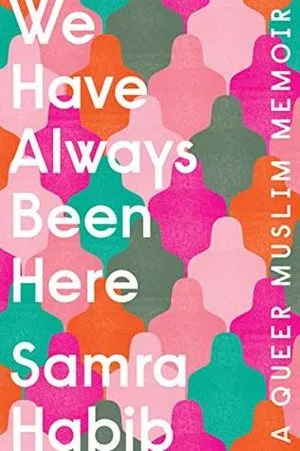
We Have Always Been Here: A Queer Muslim Memoir by Samra Habib
Habib grew up in Pakistan in the small Ahmadi Muslim community that faced regular threats from extremists. When she and her family came to Canada, she discovered a world of bullying and Islamophobia, and was hemmed in by poverty and by the threat of an arranged marriage. She was used to hiding her identity, her self, deep in order to protect herself at all costs. And so her queer coming-of-age is particularly fraught, as the writer-photographer tries to find a balance between her queerness and her faith, and learns how to be visible in a world that insists that her Muslim and queer identities can’t coexist.
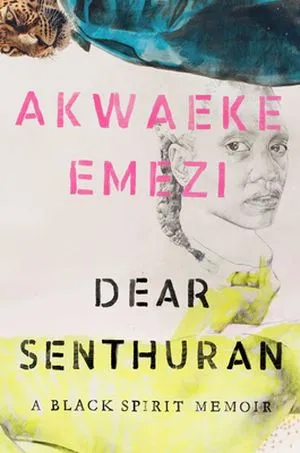
Dear Senthuran: A Black Spirit Memoir by Akwaeke Emezi
In their memoir, Emezi writes unapologetically of their gender and sexual identity. Many readers will have encountered their novel Freshwater, but Emezi was open about that being a fictionalized version that they knew readers would read as fantasy, when they considered it their life as a non-human, an ogbanje.
Emezi, who was born in Umuahia, Nigeria, writes in vivid, bold letters about living their life truly, and about how difficult that has often been, from gender dysphoria to sexual assault to a suicide attempt. Ultimately, this is the honest and fearless account of Emezi’s truth.
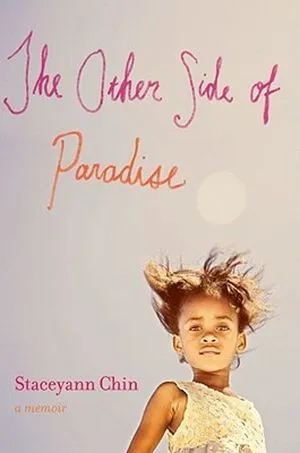
The Other Side of Paradise by Staceyann Chin
When Chin was born in Lottery, Jamaica, no one but her grandmother thought that she would survive — and no one but her grandmother was prepared to care for her and her older brother. And yet, they were separated, and a string of homes and a journey of survival ensued for Chin. She would come of age into a fierce voice now known for its spoken-word poetry and art, a rebellious lesbian artist ready to leverage the determination and confidence she’d earned.
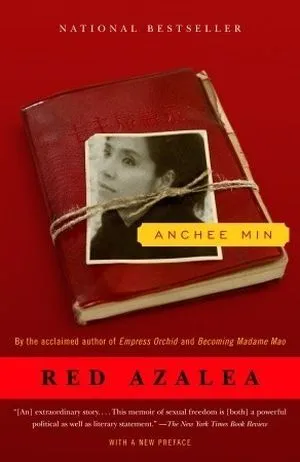
Red Azalea by Anchee Min
Min came of age in the last years of Mao Zedong’s China. Growing up in Shanghai, she believed in Mao, but she she was forced to testify against her favorite teacher, she was put into her first conflict. Later, she was sent to a labor camp, endured horrific conditions and a painful back injury, and witnesses abuse of power and violence around her that led her to doubt the government, particularly when she fell for and began an affair with the commander at her camp, a woman named Yin. She writes honestly about what it was like to grow up in the midst of the Cultural Revolution.
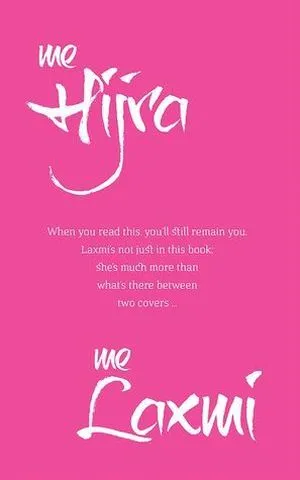
Me Hijra, Me Laxmi by Laxminarayan Tripathi, translated by PG Joshi and R. Raj Rao
Tripathi tells her story of being born confused and trapped and slowly finding her true self, a hijra named Laxmi. She writes of love and romance, of dancing, of abuse, of fame, of being the first hijra to attend the World AIDS Conference. Laxmi is a Hijra rights activist, actress, dancer, and speaker.
The hijra community is a unique and rich gender-nonconformist group. In 2014, after years of work from activists, the Indian Supreme Court recognized hijras, trans people, eunuchs, and intersex people as a legal “third gender.” Laxmi was one of the petitioners.
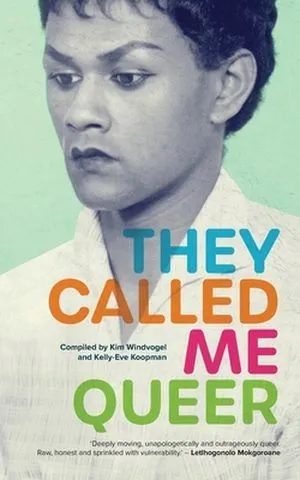
They Called Me Queer compiled by Kim Windvogel and Kelly-Eve Koopman
This book features a collection of essays, stories, and narratives by Africans who identify as lesbian, gay, bisexual, trans, queer, intersex, and asexual. It includes conversations and discussions of non-Western queerness and gender-nonconformity.
Writers are able to maximize the visibility of the many ways to be queer, from being a queer kid to how heteronormativity sneaks into gay spaces to being poly to being open, soft, and vulnerable.
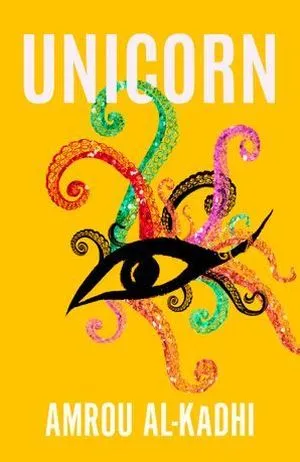
Unicorn: The Memoir of a Muslim Drag Queen by Amrou Al-Kadhi
When Al-Kadhi was a 10-year-old Muslim boy, they announced to their strict, Iraqi Muslim family that they were in love with Macaulay Culkin from Home Alone. So needless to say, they were always aware that they were different — and that their true inner self might differ from what their family wanted them to be. In this book, Al-Kadhi writes about their mother, about their obsession with marine biology, about discovering their nonbinary identity, about Islam, and about the journey that led them to their fearless nighttime persona: Glamrou, the drag queen.
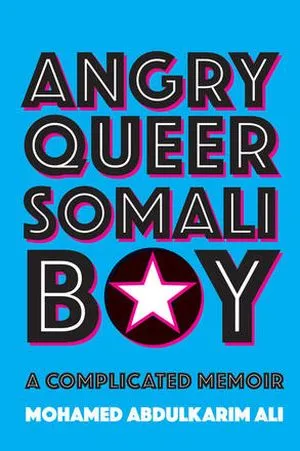
Angry Queer Somali Boy: A Complicated Memoir by Mohamed Abdulkarim Ali
As war engulfs Somalia, Ali and his family flee to the Netherlands, and later move on to Toronto. Unfortunately, the people around Ali are not ready to give him the love he deserves, and in addition to the racism and Islamophobia all around them, he experiences painful homophobia and abuse from within his own home.
Ali wrote this book when he was living in a homeless shelter, and it was published by the University of Regina Press as part of a series “written by authors who have caught in social and political circumstances beyond their control.”
Want more queer reads? Check out our list of the 100 most influential queer books of all-time, or a list of 20 must-read queer books in translation from around the world.



